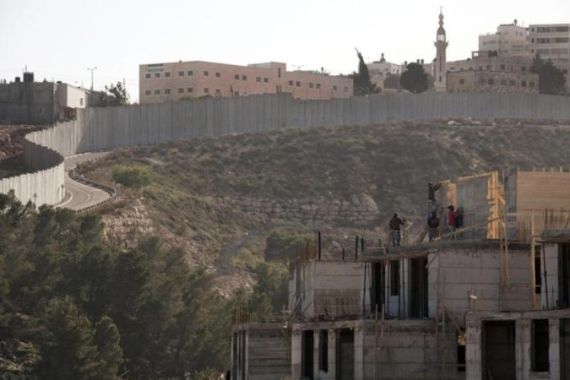Searching for a solution for a stateless people
After all these years, are Palestinians any closer to a just and democratic solution and just what form might that take?

The Palestinians are still waiting. Waiting for a state of their own. It’s been 45 years since Israel’s illegal occupation of their territories began in the Six-Day War. It’s been 19 years since the start of the so-called peace process at Oslo. But there is no peace and there is no process.
Israeli settlements continue to mushroom; new figures from Israel’s interior ministry in July revealed that the number of settlers in the occupied West Bank has crossed the 350,000 mark for the first time. In the past year alone, the number of West Bank settlers skyrocketed by more than 15,000. (These figures, incidentally, don’t include the 200,000 settlers living in occupied East Jerusalem.)
You can’t help but notice the vast settlements as you drive into the West Bank from Israel. They dominate the landscape.
But the real surprise comes in Palestinian-controlled Ramallah, the cultural, commercial and political hub of the West Bank. It’s a boom town, with major construction projects, fancy foreign cars and fine houses, funded by international aid… and guilty consciences.
There’s a grand presidential palace that would make a sultan blush, but it sits just round the corner from poverty-stricken refugee camps and Israel’s “apartheid” wall.
“It’s a bubble,” says young businessman Khaled al-Sabawi, who says much of the donor money has been wasted and sees foreign aid, as a whole, as a form of “bribery” – a way of keeping the Palestinians subdued.
These days, rather than resisting the Israelis or standing up to the international community, the Palestinians are fighting each other.
The occupied Palestinian population is now split between the Gaza Strip, under the control of the Islamists of Hamas, and the West Bank, governed by the secular Fatah-led Palestinian Authority (PA). There has been much talk of a “unity government” but, so far, the two factions have been unable to form such a coalition for any decent length of time.
Meanwhile, in Ramallah, many accuse the PA, and its president Mahmoud Abbas, of being nothing less than Israeli stooges and subcontractors – and the PA’s mismanagement of the economy and constant postponing of elections has made it deeply unpopular. Abbas’ own presidential term expired in January 2009; he rules by presidential decree and diktat.
Human rights groups have criticised both the PA in the West Bank and Hamas in Gaza for flagrant human rights abuses, including the torture of detainees. PA and Fatah officials – funded by the West – may speak of democracy and human rights but they have no qualms about throwing Palestinian journalists and bloggers behind bars or shutting down the websites of their political rivals.
The Al Jazeera film crew was temporarily detained in Ramallah for daring to point their cameras at Abbas’ grotesque palace.
So what does the future hold for the Palestinian people?
A one-state solution, backed by activists such as Diana Buttu, the former PLO negotiator, in which Palestinians and Jews live side by side as equals in a single, secular, bi-national state? A two-state solution, backed both by the international community and PA officials such as Nabil Shaath, which envisages an independent Palestinian state on the territories occupied and colonised by Israel since 1967?
Or, in the words of Fatah politician Mohammed Shtayya, a nightmarish “three entity solution”, in which the status quo becomes permanent, entrenched and irreversible, with Palestinians divided between Fatah rule in the West Bank, Hamas rule in Gaza and Likud-led rule inside Israel?
After all these years, are the Palestinians any closer to a just and democratic solution?
Watch The Cafe from Ramallah at the following times on Al Jazeera English: Friday, August 17 at 2000GMT; Saturday, August 18 at 1200GMT; Sunday, August 19 at 0100GMT; and Monday, August 20 at 0600GMT. Click here for more on The Cafe.
Follow Mehdi Hasan on Twitter: @mehdirhasan
